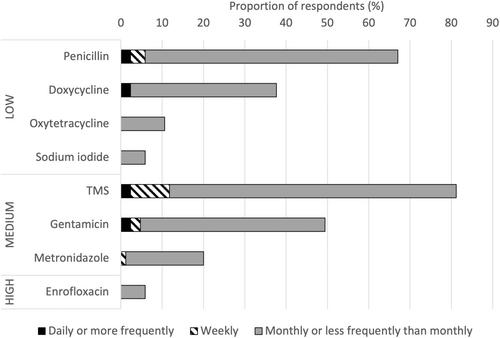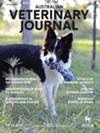Antimicrobial use and prescribing practices by equine veterinarians in Australia: Insights into reproduction, dentistry, compounding and use for nonbactericidal effects
Abstract
Background
Antimicrobial resistance (AMR) is a problem for equine practitioners in Australia, but antimicrobial use in practice has been largely understudied. We aimed to evaluate equine veterinarians' intentions of prescribing antimicrobials in areas where we perceived there to be wide ranges of practice – dentistry, reproduction and for nonbactericidal effects.
Method
An online cross-sectional survey of veterinarians working in equine practice was conducted over 4 months in 2023 and 2024. Antimicrobial use, including compounding practices, for reproductive and dental disorders, and nonbactericidal effects were investigated.
Results
Responses were received from 134 equine practitioners in Australia. Most respondents reported using common equine antimicrobials (trimethoprim sulphonamide (TMS), penicillin and gentamicin). Low- and medium-importance-rated antimicrobials predominated for dental and reproductive disorders although there were some reported uses of high-importance agents, including some not registered for use in horses. Prescribing compounded antimicrobials was common (70% of respondents). Antimicrobials were also reported to be used for contracted tendons, matrix metalloprotease inhibition, anti-inflammatory and antiendotoxic and other nonbacteriocidal effects.
Conclusion
Although antimicrobial prescribing patterns varied, most respondents reported using common equine antimicrobials. Antimicrobial guidelines may assist in aligning practice and reducing inappropriate antimicrobial use in horses.


 求助内容:
求助内容: 应助结果提醒方式:
应助结果提醒方式:


